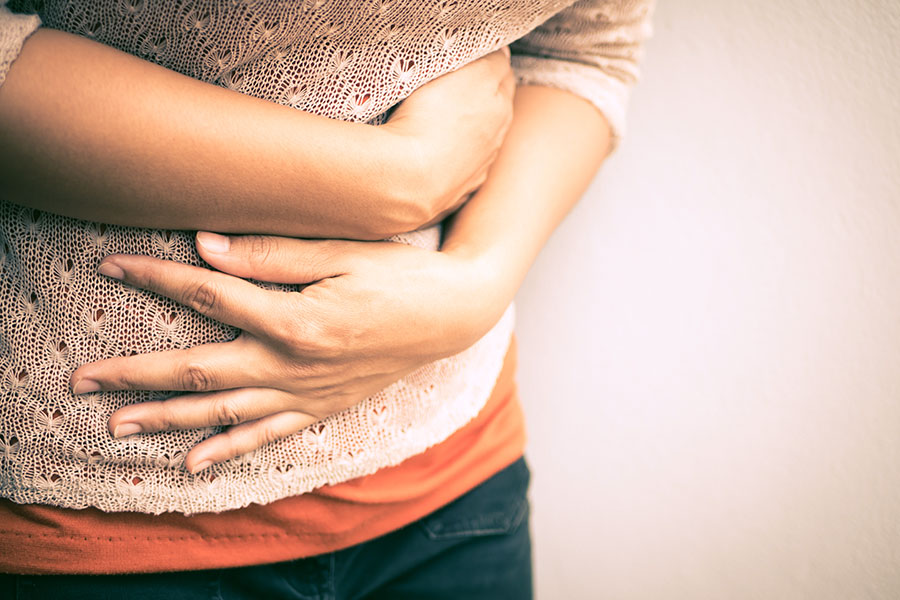Most people think of winter as the “sick season,” but summer’s seasonal woes can, at best leave you limp with fatigue and at worst, in the hospital battling sunstroke. But with some simple precautions, you can stay safe this summer.
Exercise
Your metabolism always generates heat, and when you exercise, your muscles crank out 20 times more. That’s okay if body heat can pass out into cool air. As the temperature rises, though, cooling becomes difficult, then impossible. The evaporation of sweat can also take away lots of body heat, but as the humidity rises, this too becomes difficult, then impossible. Heat that can’t be shed externally remains trapped in the body. That’s when problems develop. Some are mild (muscle cramps), others serious (heat exhaustion), and some can be lethal (heat stroke). A few simple precautions can keep you from overheating during the dog days of summer.
- Avoid sunlight – Schedule your outdoor activity in the early morning or the evening and take advantage of the cooler temperatures.
- Take it easy – Make swimming or walking instead of jogging your choice of physical activity. Take breaks and quit early.
- Don’t work out in extreme heat and humidity – If it’s humid and above 35° to 40°C take a day off from exercise or head for the pool – or an air-conditioned health club.
- Drink plenty of water – Drink 150ml to 200 ml of cool water before you get started, and pause frequently to drink. Even if you don’t feel thirsty, drink again on your way to the shower. conditioner or fans.
- Listen to your body – Fatigue, weakness, confusion, lightheadedness, nausea, labored breathing, chest discomfort, or a rapid or erratic pulse can all be signs of trouble. If you feel ill, get into a cool place and drink plenty of water. If you don’t improve promptly, get help.
Diet
Summer is the best time to loose weight because you lose your appetite for fried spicy foods and are more drawn to nature’s healthy bounty.
- Drink lots of water but check out the source as it is easily contaminated. Filtered, boiled water is best.
- Maintain good food hygiene. Don’1 consume food which has been kept out of the fridge for longer than 2 hours.
- As tempted as you are to drink syrups, remember these are loaded with sugar: If you’ve gone without eating for a long time and you have something sweet, your blood will get a sugar spike that puts you in a pre diabetic state, even if you don’t have the condition. That dizzy feeling you get is a telling sign.
- Electral, or iced green tea with a sugar substitute are better options.
- Coconut Water is best. It contains electrolytes in a ratio similar to that in your blood which calms the body temperature.
- Curd contains probiotics which increases good bacteria in your stomach. Add Ocimum tenuiflorum (Tulsi), Curry tree, mustard seeds to your buttermilk; these herbs /spices have medicinal properties that calm the nervous system.
- Cold drinks, ice creams and ice cold beers can intervene with digestion and sweating. Of course these coolers can give you temporary relief from the heat but they affect your body’s natural cooling system. Alcohol is also high in calories. Draft beer (90 cals) or wine (75 cals/glass) is better.
- Mango is rich in fibre and minerals but also high in sugar. Each fruit totes up to 90-1 10 cal.
- Increase your intake of water soluble vitamins (B, C) and zinc, which protect you from flus, infections and allergies, because they get depleted faster through sweat. Get vitamin C from amla, citrus fruit, B from high fiber wheat flakes, whole wheat breads. Zinc is found in fish and sea food. Or else take a Vitamin C and zinc supplement only in summer as a safeguard.
- A B-complex rich breakfast will keep you energetic all day long. Say curd rice with chopped up cucumber and coriander, a whole wheat toast with egg or wheat flakes with curd. To keep lunch and dinner light, focus on fruits and vegetables rather than cereals, if you are a vegetarian. Good options: leafy vegetables, Calabash, Bitter melon, Pointed gourd, carrot, cucumber together with a glass of ginger— lemon juice, a plate of cut up fruit (papaya, musk melon). Non vegetarians can have chicken and vegetables or fish and vegetables. Fish is better than chicken. Limit red meat.
- Keep total calories down to 1800 (women), 2200- 2500 (men).
Eyes
The ultraviolet rays in sunlight can damage your eyes every bit as much as your skin. The cornea is at particular risk. Even a single intense exposure can cause photokeratitis, or sun blindness. The symptoms are pain and light sensitivity, often accompanied by redness, tearing, and uncontrollable blinking. Fortunately, the cornea will usually repair itself in 12 to 48 hours. But repeated low-level ultraviolet exposure can cause cumulative damage to the lens, ultimately resulting in cataracts. Sunglasses will prevent both problems if they have high-quality lenses that screen out UV rays. Avoid lenses that are rated as “cosmetic.” Instead, look for sunglasses rated “general purpose” that absorb at least 95% of ultraviolet B rays and 60% of ultraviolet A. For intense exposures, turn to glasses with a “special purpose” rating; they absorb 99% of UVB.
Skin
Sun exposure causes tanning, premature aging and wrinkling of your skin, Sunlight contains two forms of ultraviolet energy, UVA and UVB. Use a sunscreen that will protect you from both. Most products are effective against UVB. but many fail against UVA. Look for a “broad-spectrum” sunscreen; ingredients such as avobenzone and ecamsule are good for UVA, while oxybenzone and octocrylene add UVB protection. Zinc oxide and titanium dioxide protect against both. Many sunscreen brands contain a mix of ingredients that provides protection against UVA and UVB.
Use a sunscreen with an SPF of 15 or higher. (Brands worth trying — Avene SPF50, SunKroma Nano (SPF-50), Photoban aqua gel if you have sensitive skin.) Apply it liberally 15 to 30 minutes before sun exposure; the most common mistake is not forgetting to use sunscreen, but using too little. Remember to reapply it every two hours and after you swim or dry yourself with a towel. Even sweating can wash away protection.
Above all, don’t let sunscreen give you a false sense of security. The only foolproof protection is to avoid sunlight as much as possible. Stay in the shade when you can, especially between 10 AM and 3 PM, when the sun’s rays are strongest. Try to stay away from reflective surfaces. Wear a hat with a wide brim, pants, and long sleeves.
- Stock up on Zyndet bar soap and Clotrimazole powder, commonly known as absorb powder, to treat fungal and other infections caused by excessive sweating. These help eliminate 80 too.
- An Astymin Z Forte multivitamin pill daily will keep you glowing. Women should add folic acid.
- Antioxidants like lycopene and phloretin – along with vitamins like C and E – appear to help the skin naturally handle more sun.
- Use a face wash containing an alpha hydroxyl acid in lieu of soap. (Brands: Fash for oily skin, Cetaphil, Ethiglo). The AHA will also exfoliate your skin leaving it looking brighter and fresh.
- Got body odour? Splash Aldry lotion under your arms.
- Change underwear twice daily to avoid infection.
- A Depiwhite face peel-off mask gel keeps your face glowing.
- Don’t forget your daily cleansing, toning and moisturizing ritual.
- Elbows, hands, face and neck darken the most. Detanning creams like Melaglow, Melalite, and Eukroma cream keep these neglected areas looking good.
- Banish sweat aggravated acne with a Benzoyl Peroxide gel 2.5%.
- Lipsticks and foundations provide additional sun protection. But use products which are tested and clinically approved like MAC and Dermalogica.



